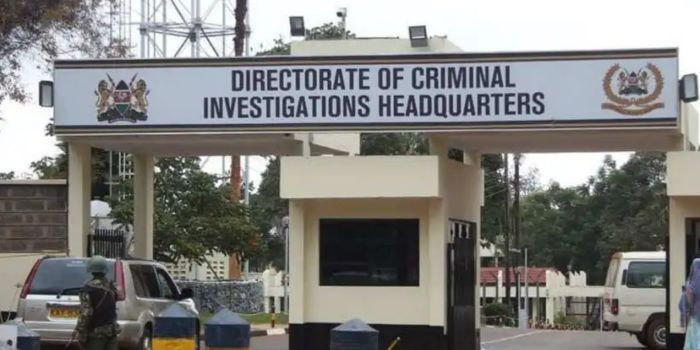Two officers from the Directorate of Criminal Investigations (DCI) who were involved in probing filmmakers linked to BBC’s “Blood Parliament” documentary are now facing the possibility of perjury charges.
This comes after new concerns were raised that the officers may have given false information in affidavits presented before the court, casting doubt on parts of the investigation.
During a court appearance on Thursday, November 20, Advocate Ian Mutiso told the magistrate that the case had now received fresh guidance from the Office of the Director of Public Prosecutions (ODPP).
According to him, the ODPP will give a clear decision on November 27 on whether the four filmmakers associated with the documentary will formally be charged or not.
Mutiso went further to request that the two DCI officers be summoned to explain themselves over allegations of lying under oath.
He argued that perjury is a serious offence and stressed that the defence team is committed to ensuring full accountability, especially to protect the filmmakers’ privacy and uphold fairness throughout the legal process.
He also asked the court to close the cases that involved obtaining data from the filmmakers’ devices while the gadgets were held by the state.
The magistrate, however, noted that the court would first review new documents and evidence. A mention date was set for November 27 at 2:30 pm, during which the court will decide whether to issue the summons against the officers.
The four filmmakers were arrested on May 5, 2025, following a raid at their Karen studio. They were detained at Pangani and Muthaiga police stations, and several of their electronic devices were confiscated.
A day after their arrest, the court ordered their release on bail, and on May 7, the High Court granted them anticipatory bail of Ksh 10,000. In that decision, the court also directed the DCI not to harass or rearrest the filmmakers, instructing them instead to report to DCI headquarters on May 21.
Later in May 2025, the ODPP was given 21 days to decide whether the individuals should be prosecuted. This came after the DCI, in sworn affidavits, accused the filmmakers of working with the BBC and other parties to produce and release misleading and harmful information targeting the state security agency.
The unfolding events now highlight deeper concerns over how the investigation was handled, especially with claims of false statements made under oath.
As the case returns to court later this month, both sides are preparing for a critical decision that may shape the next phase of the “Blood Parliament” probe.
Join Government Official WhatsApp Channel To Stay Updated On time
https://whatsapp.com/channel/0029VaWT5gSGufImU8R0DO30


